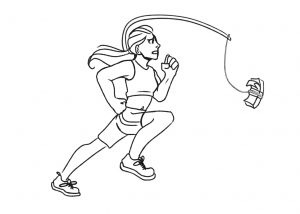College athletes should receive payment
December 26, 2018
Recently, successful collegiate men’s basketball teams have been caught illegally paying their recruits in order to coax them into attending their respective institutions. The University of Arizona, the University of Kansas, the University of Louisville, and North Carolina State University are among the institutions that are currently under FBI investigation. This predicament arose due to the flawed system the National Collegiate Athletic Association has in place.
There is a lot of dirty money in collegiate athletics. If colleges offered to pay a stipend to their athletes, they wouldn’t be as susceptible to bribes that could change the trajectory of their future careers. Direct payments to athletes from colleges would clean up sports through greater transparency.
First and foremost, college athletes deserve to be paid because their performance generates a huge amount of revenue for the NCAA. “The NCAA currently produces nearly $11 Billion in annual revenue from college sports – more than the estimated total league revenues of both the National Basketball Association and the National Hockey League,” an article by Forbes reported. High ratings in television have brought in billions of dollars in advertising. College football alone “pulled in more than $1 billion” this past season, according to an article by ESPN. Additionally, March Madness earns “somewhere around $900 million in revenue” for the NCAA, according to Investopedia. However, no revenue is being shared with the people who are earning it; it is going to it coaches, athletic departments, and management. Why shouldn’t college athletes receive a share of the revenue that they tirelessly work for?
Playing a sport at a division one level is more time consuming than working a full time job. “The typical Division I college football player devotes 43.3 hours per week to his sport – 3.3 more hours than the typical American work week,” according to an article by Forbes. Being a collegiate athlete is a year-round commitment, with an arduous work schedule.“In some way [the NCAA] is taking advantage of college athletes that sign their name into a certain school,” AJ McCarron, a former starting quarterback for Alabama, explained.
Athletes make sacrifices in order to compete and make money for their university. “The NCAA’s own tournament schedules requires college athletes to miss classes for nationally televised games that bring in revenue,” Forbes stated. Athletes are not able to be typical students. They miss out on extracurricular activities like clubs, Greek life, and performances.
The increase in revenue that sports provide allows for an improved college atmosphere for all students. The money that athletes earn for their school not only goes back to improve their own team, but also provides Title IX opportunities–the same number of athletic scholarships that are offered to women as men–and finances the equipment, professors, and housing a college possesses. Many students look to attend a school with school spirit and a vibrant sports culture, which is provided by college athletics. Not nearly as many students would consider attending the University of Alabama if not for their football team. The same is true for winning programs all across the nation.
The National College Players Association reported that 86 percent of college athletes live below the poverty line. Paying these athletes would reduce the income inequality. Receiving a full ride to attend college is not substantial enough; they do not have any spending money or any time to work a part time job. All-American linebacker Donnie Edwards said “I didn’t have enough money to buy food.” The NCAA then suspended Edwards after an agent left groceries on his doorstep for violating NCAA policies of accepting a gift from an agent. “For those of you who think the life of a college athlete is all glitter and glamour…it was mostly holing up in the dorms at night because you couldn’t afford to go out,” Kareem Abdul-Jabbar stated in an article by The Guardian. With billions of dollars in revenue, surely the players deserve a piece of the pie. In no other industry would we consider it proper to not pay the workers.
The time has come to start paying college athletes for their contributions. The NCAA, with all of its resources, needs to compensate athletes for their labor by setting up a formal system. It is not only fair, but it is the right thing to do.


